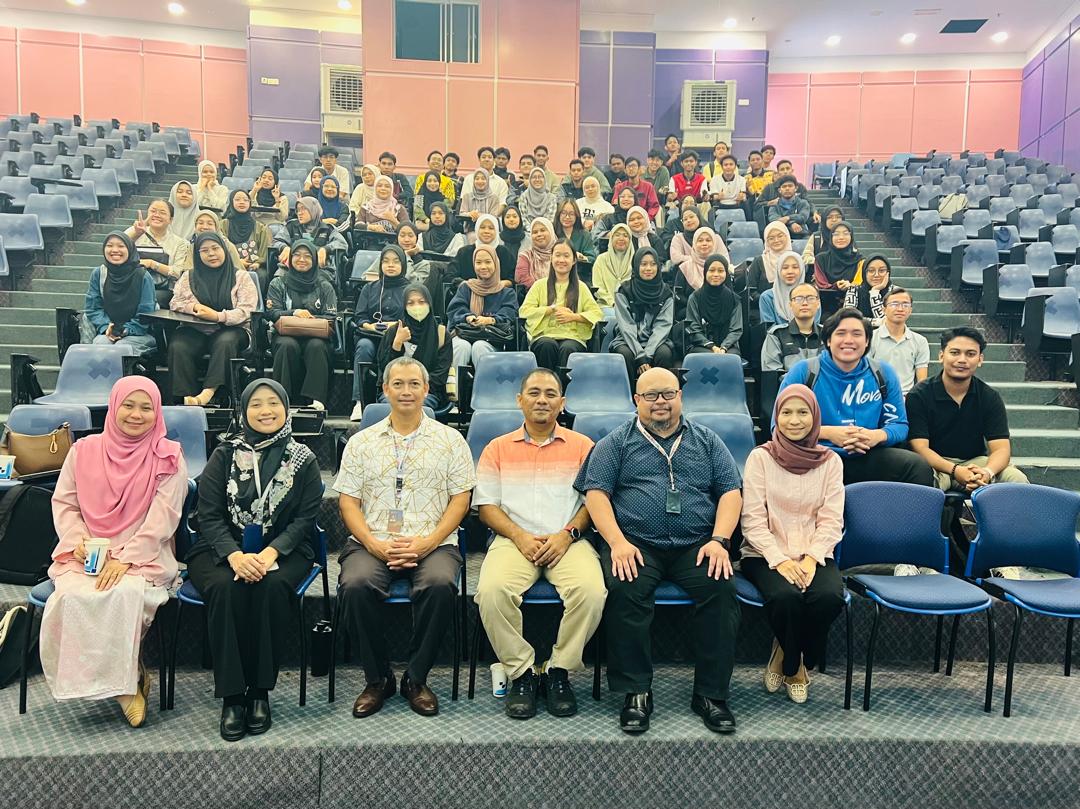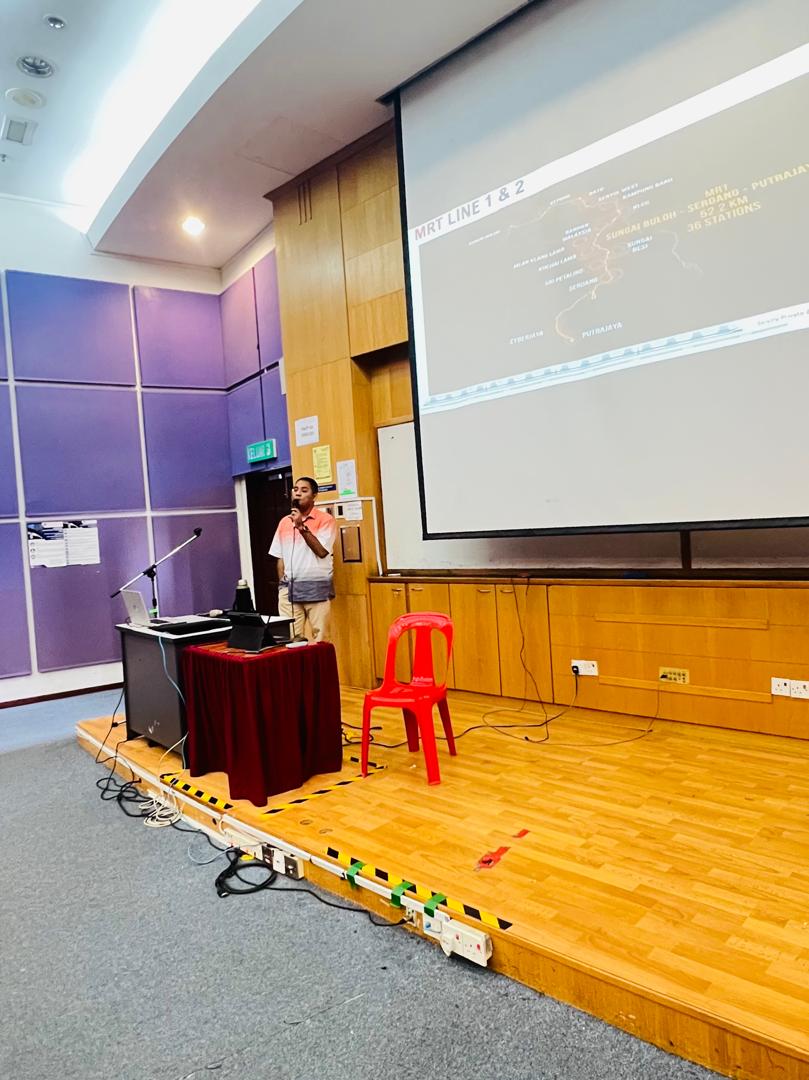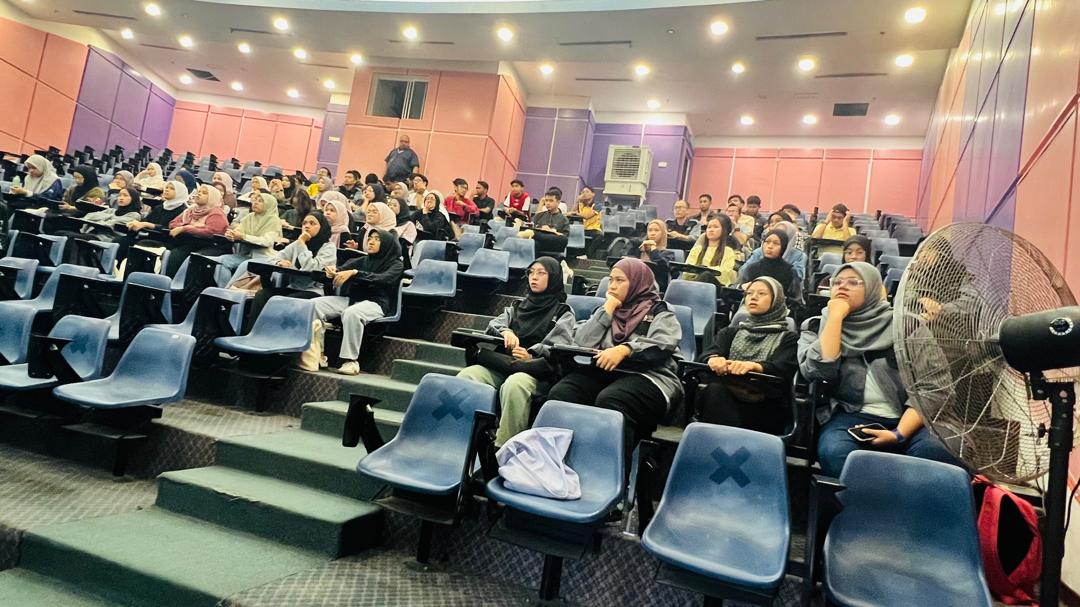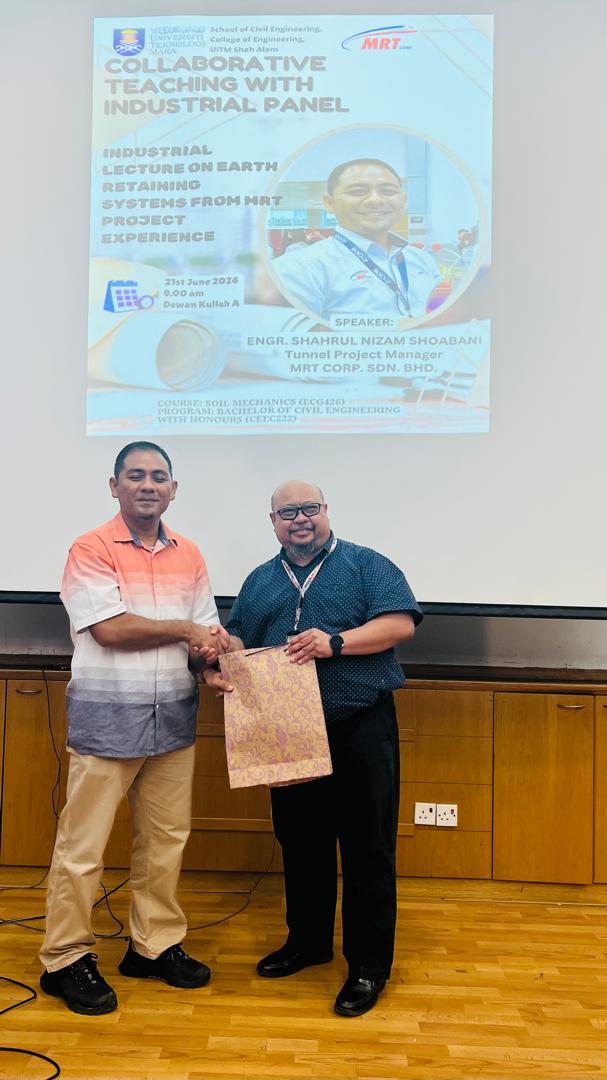
Shah Alam, 21 June 2024 – A collaborative teaching activity was conducted featuring an industry guest speaker. This session aimed to educate students with the retaining structural systems used in the Mass Rapid Transit (MRT) project. The lecture was delivered by a representative of MRT Corp. Sdn. Bhd., Engr. Shahrul Nizam Bin Shoabani. A total of 192 students enrolled in this course (ECG426) were required to join this session. The presentation, titled “Earth Retaining Systems from MRT Project Experience,” was particularly relevant to the fifth topic in the syllabus, which covers Lateral Earth Pressure and Retaining Structures. Speaker shared what are the important stages and elements involved in MRT project. After planning and designing stage, the construction phase begins with site preparation and initial excavation which set the groundwork for the project. Retaining structures are installed to support excavations and prevent soil collapse, providing stability and safety of site.
Engr. Shahrul further explained future MRT plans in the Klang Valley, including network expansion to increase connectivity and minimise traffic congestion. The proposed additions aim to connect more residential and commercial sectors, increasing public transit accessibility and efficiency for a bigger population. The sharing event gave students significant insights into the retaining structural systems used to build the MRT. Understanding real world applications might help students better understand the theoretical topics covered in the syllabus. This experience enhances their understanding and prepares them for future challenges in their engineering careers.

The event, held in Dewan Kuliah A, College of Engineering, was helpful in bridging the gap between academic learning and practical practices. The students valued the opportunity to learn from a qualified professional and obtain greater knowledge of the technical aspects of large scale infrastructure projects such as the MRT.
The learning outcomes were designed to support sustainable urbanisation that aligns with SDG 9, which aims to build resilient infrastructure, promote inclusive and sustainable industrialization and foster innovation. The MRT project is an excellent example of resilient infrastructure, as it addresses the transit needs of the Klang Valley’s rising metropolitan population. By introducing students to the real applications and challenges of such a project, the workshop promoted knowledge of sustainable industrial practices and technical innovation.

This collaborative teaching not only corresponded with SDG 9, but also met significant ADAB objectives. It specifically addressed Code B1: Digest by offering students with expert knowledge on retaining structures and the MRT project, which added practical relevance to their theoretical learning. It also included Code B3: Synthesis, which enabled students to integrate and relate the presented facts, allowing them to understand the applications and significance of resilient infrastructure in sustainable urban development.
Overall, the collaborative teaching activity with Engr. Shahrul Nizam was quite successful. It gave students a thorough understanding of earth retaining systems and their use in the MRT project. The connection between industry and academia are critical for improving students’ practical knowledge and preparing them for future employment as engineers.

